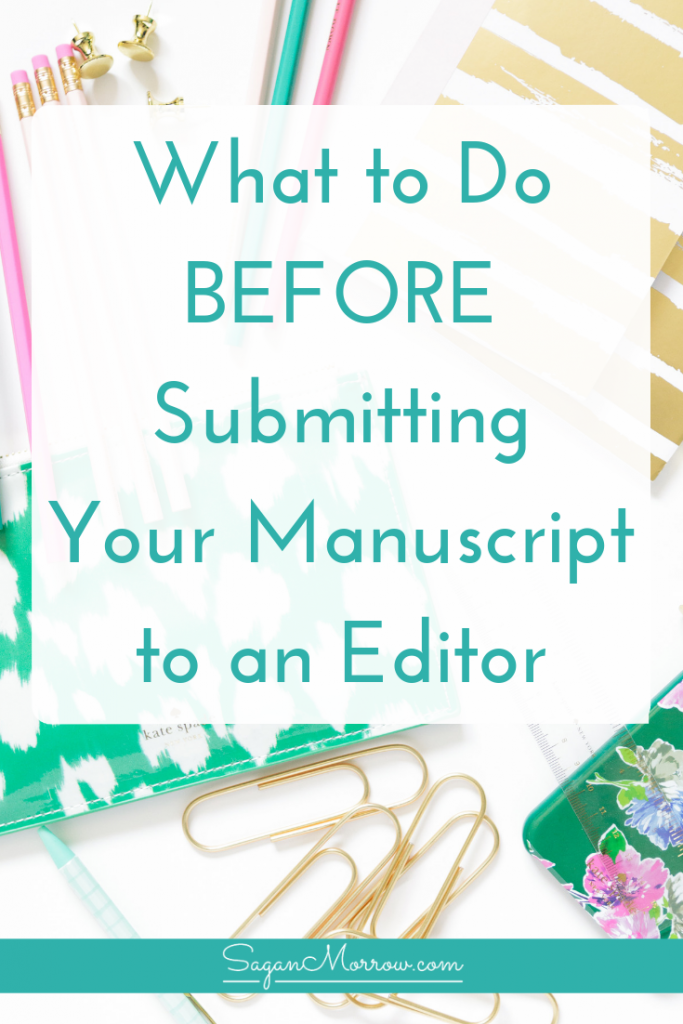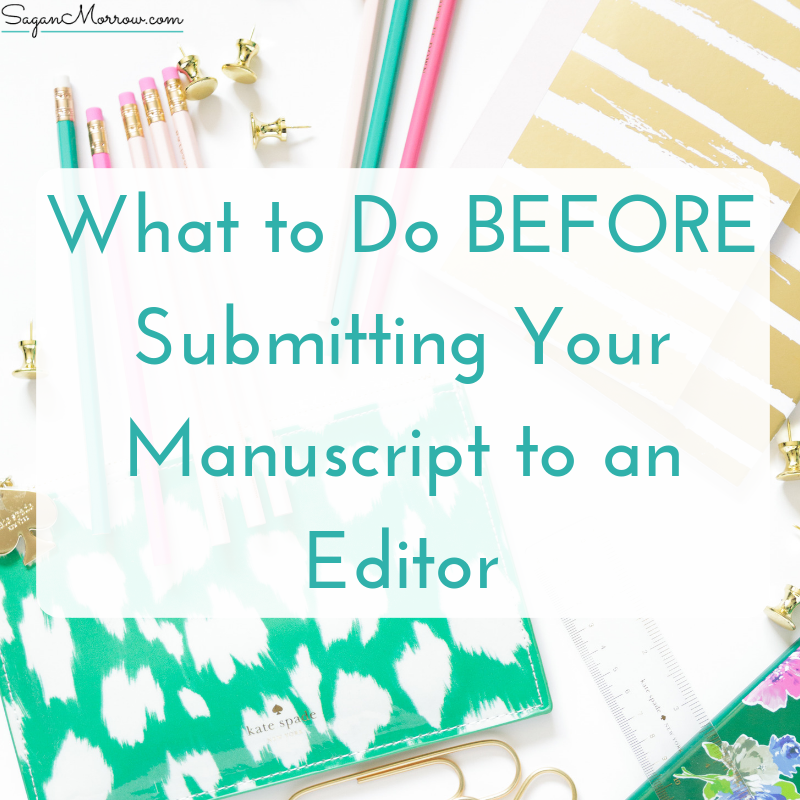As a freelance editor, I’ve had the great pleasure of working with several indie (and established!) authors on editing their manuscripts.
I’ve done everything from proofreading to developmental editing for authors, in genres from children’s books to crime mysteries, so the types of manuscripts (and the amount that they are ready for editing) that I have received really varies.
By the way—click here to get my step-by-step process for successfully writing and publishing a novel!
However, there are a few things that authors should always do, no matter what their genre and no matter what type of edit they are looking for, before they submit their manuscript to an editor:
1) Understand what you want from an editor (and the goal of your book!)
Do your research! Understand the difference between a proofread and a copy edit and a stylistic edit. Understand what you want and need from your editor, and make sure you clearly communicate to them what exactly it is you’re looking for.
If you’re requesting a developmental edit, it’s also vital that you understand what you want from your book, and what the central point of the manuscript is. This can help you out when you hire an editor to review your book and give you their thoughts on what you could do to improve it, so that you can get that much closer to your goal.
2) Read over your book
Even if you’re getting a developmental edit done, please read over your book.
I totally get that you’ve been working on your manuscript for a long time and you’re probably sick of looking it over… but if you don’t look it over before submitting it, you’re just asking an editor to do way more work than is really needed. And that’s going to probably cost you a lot of extra money!
Save yourself the dollars and look over your manuscript first so you can deal with glaring inconsistencies and errors. You should definitely read over your entire book from start to finish at least once (and preferably multiple times) before submitting to an editor.
3) Identify what YOU think your strengths and weaknesses are.
One of the great things about hiring an editor is that you get a unique outsider’s perspective on your book. You can learn so many things from an editor’s critique if you are open to learning and receiving constructive criticism! 
That being said, it’s also good if you can go into the edit already knowing what your strengths and weaknesses are. Are you really great at writing dialogue? Is there a phrase that you love (over)using again and again? Do you need to work on varying your synonyms? Do you need to tone down the plot twists?
Understanding your strengths and weaknesses ahead of time will make you a better writer, prepare you for what your editor is going to tell you, and help your readers enjoy your book that much more. Take your ego out of the equation.


Also, send the book out to at least three beta readers (five is better). Implementing early beta reader feedback BEFORE sending it out to your professional editor can save you a lot of money.
Catherine Jones Payne
Managing Editor
Quill Pen Editorial Services
Yes! Beta readers can be a great asset.